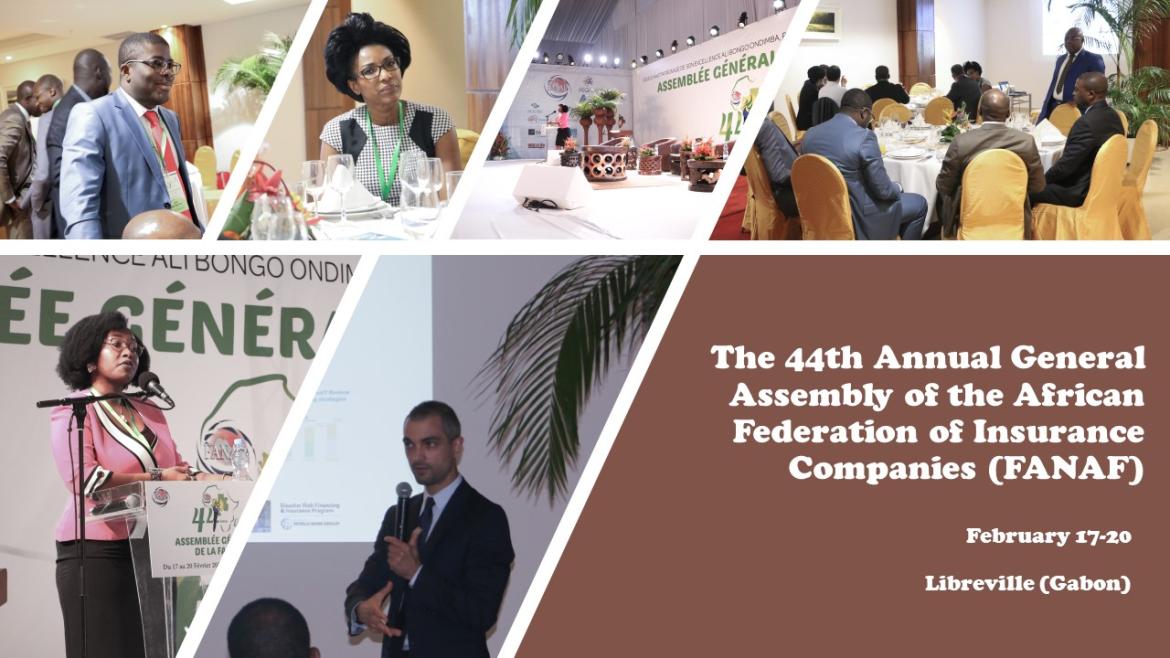The 44th Annual General Assembly of the African Federation of Insurance Companies (FANAF)

The African Federation of Insurance Companies (La Fédération des Sociétés d'Assurances de Droit National Africaines - FANAF) held its 44th Annual General Assembly in Libreville, Gabon, between February 17-20, 2020. This year’s high-level event provided a platform to approx. 1100 participants from (re) insurance companies, regulators, brokers, financial institutions to discuss the development of the sector in the continent in general, and their main challenges in operations, in particular. The event is also recognized internationally and praised for its technical panels on innovation, technology and policy components of the insurance industry.
During this year’s event, The World Bank Group (Global Index Insurance Facility (GIIF) and Disaster Risk Financing and Insurance Program (DRFIP), organized a session presenting their activities on the continent focusing on CLIMATE RISKS and FINTECH solutions applicable to the agricultural insurance. The session was attended by over 35 participants, among which CEOs and Heads of Departments of Africa Re, SCR, AXA Cameroon and Cote d Ivoire, Africa Insurance Organization, CNAAS as well as the Secretary General of the CFA franc Zone Insurance Regulatory Body CIMA. The presentations triggered broad interest, specifically on innovative use of technology: on aspects such as Insurtech for product distribution, cost-efficient use of satellite technology for claims management, crop mapping, risk understanding/modelling. Click here to watch a short video (in French) to recap the meeting. Moreover, click here to watch the interviews (in French) with GIIF's public private partners.
Tenin Fatimata Dicko, Financial Sector Specialist, GIIF, delivered a presentation at the plenary session on “GIIF: leveraging technology solutions to tackle challenges in agriculture insurance.” Click the video here to recap the presentation and her post-event interview (in French).
Antoine Bavandi, Senior Financial Sector Specialist, made a presentation on current work jointly done with the European Space Agency (ESA) focused on leveraging the use of satellite data for strengthened risk finance operations. It sparked wide interest, including on the following aspects: global access to visual risk information on multiple climate perils (drought, floods) specifically for data-poor countries (e.g. Benin), and near real time monitoring capability (specifically targeting rapid-onset event emergency response, e.g. assistance to flood affected populations). The WB partnership with ESA partnership, its complementarity with traditional hydromet techniques means countries will benefit from free, more robust risk information and will be supported in turn by more impactful operations. The strong linkages between operational and analytical activities means countries will be provided with game-changing, state-of-the-art information and products embedded into more impactful crisis and disaster risk finance.
